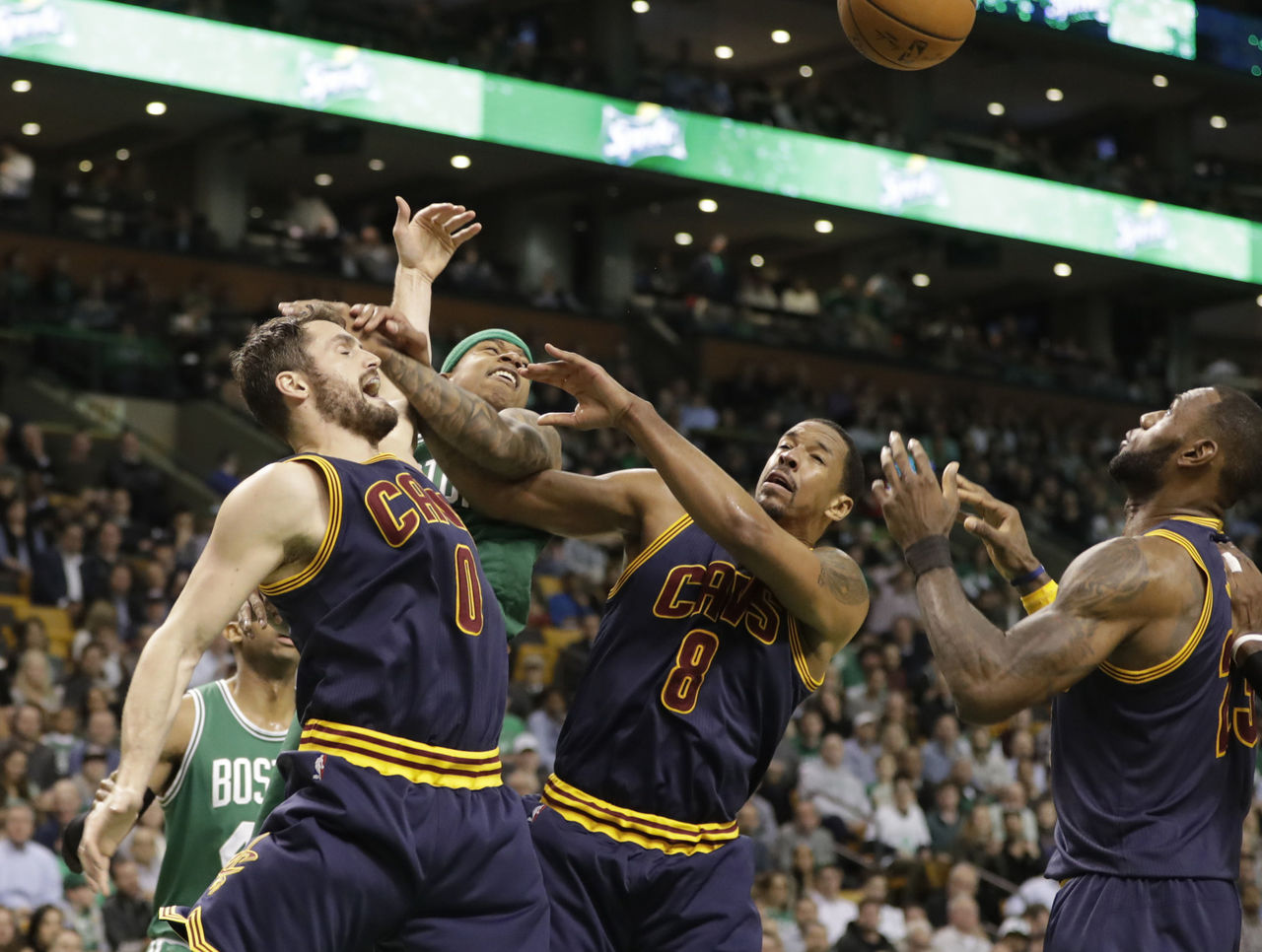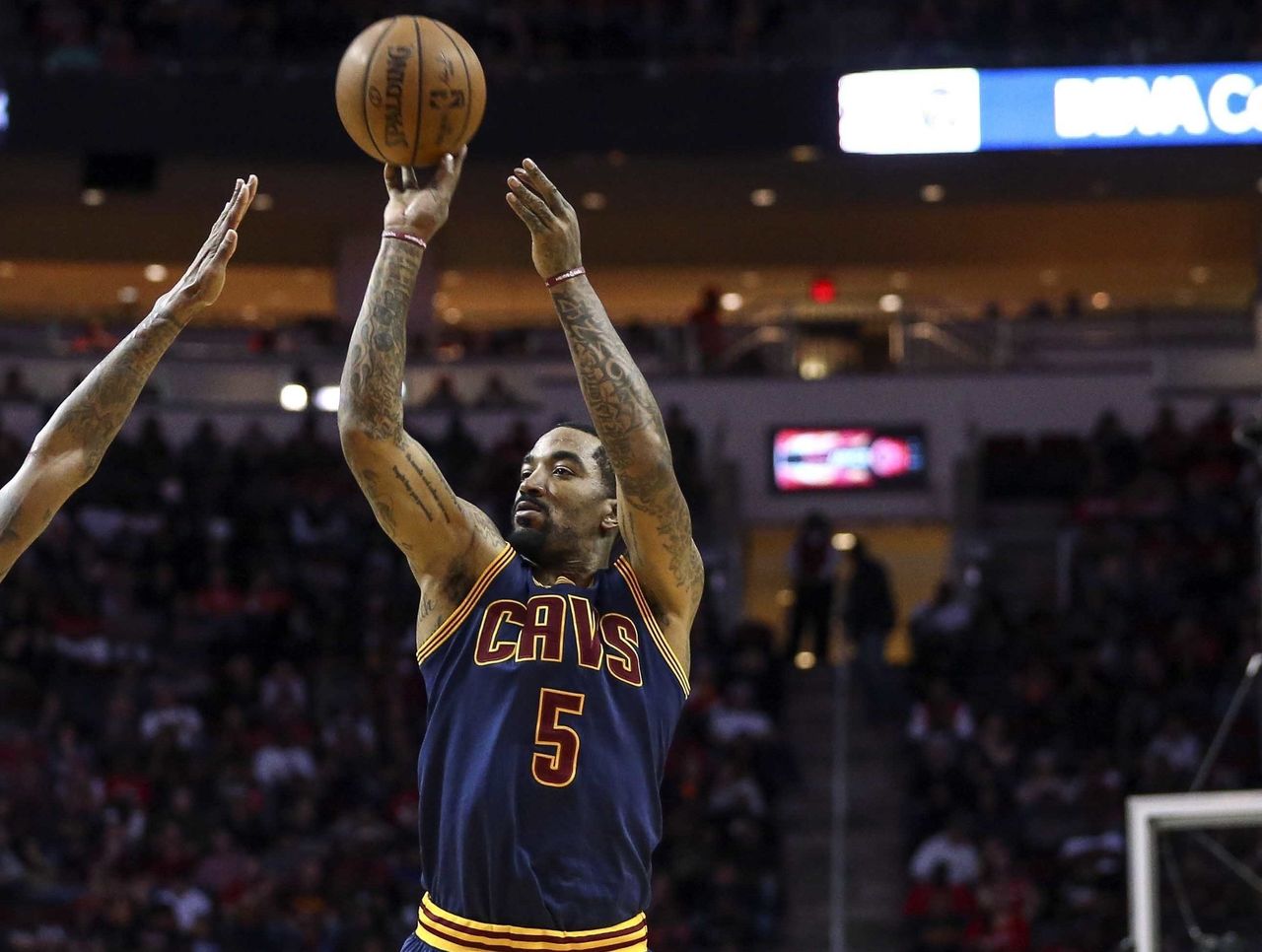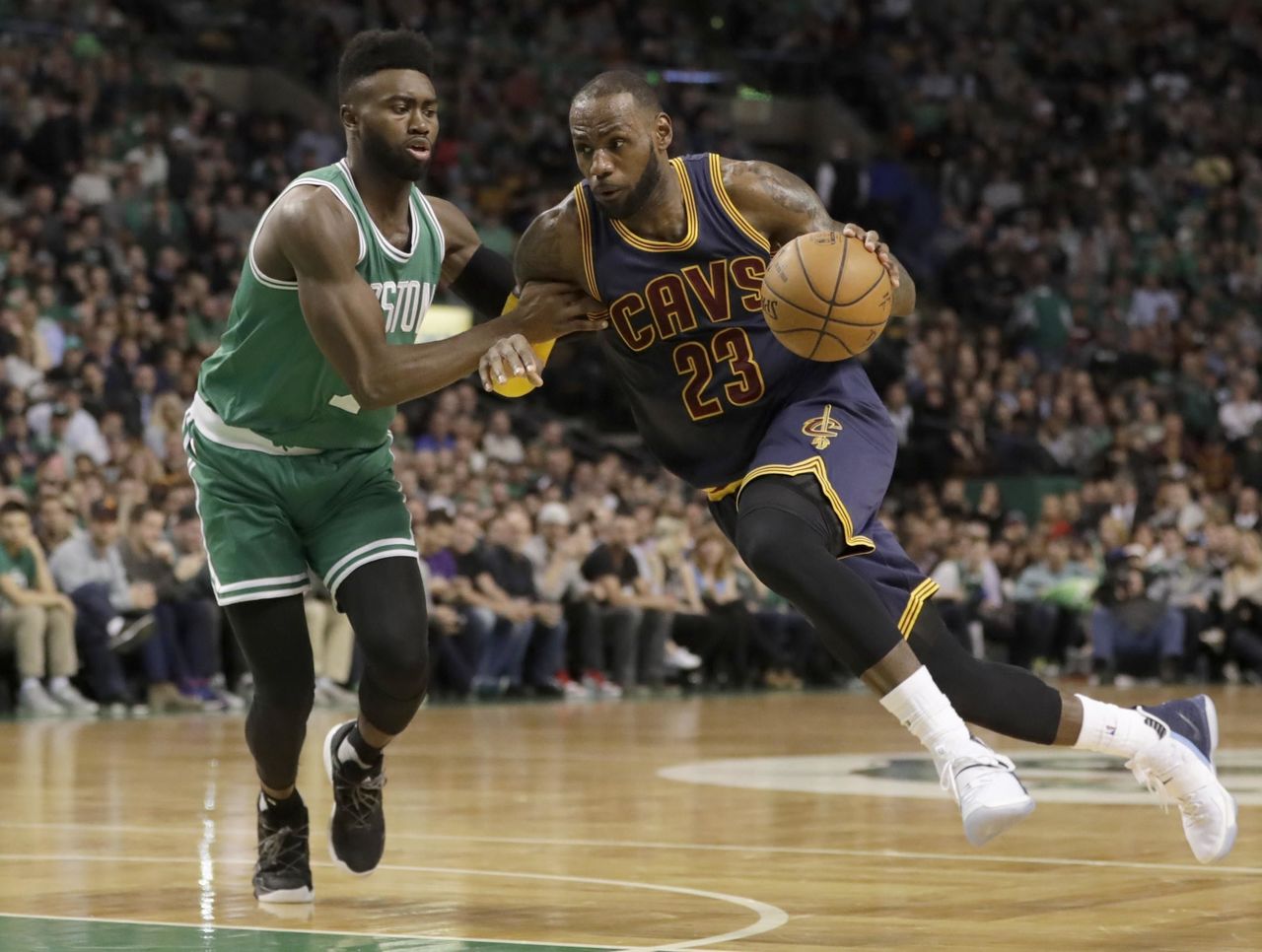How LeBron and the undersized Cavs manhandled the Celtics
We were prepared for all the Cleveland caveats to apply Wednesday night, when the top two teams in the Eastern Conference clashed in a game that might well decide which ends up No. 1. The Cavaliers were on the road, coming in on the second night of a back-to-back, and playing their third game in four nights, against a Boston Celtics team that came in on two days' rest, with a 28-10 record at home.
This was one of the biggest games left on the regular-season calendar, and a potential conference finals preview, but it looked like the outcome would be decided by the schedule makers. When LeBron James downplayed the significance of regular-season games Tuesday, it seemed like a preemptive hedge against a likely loss. Instead, the Cavs played their best defensive game in eons, and buried the Celtics before the fourth quarter. Here's how:
Death by small ball

It seemed like the Celtics were getting a gift when big man Tristan Thompson was ruled out for Cleveland, but it turned out to be a bit of a Trojan horse. Without Thompson, and without any other traditional centers (Larry Sanders wasn't dusted off until garbage time), the Cavs were forced to play super small for long stretches, and the Celtics were utterly confounded.
The Cavs have the offensive versatility to pose matchup problems using all different types of lineups, against any team, but they played virtually this entire game with vast oceans of space to work with thanks to their uber-stretchy small lineups, and the Celtics failed to counter. They might've forced Cleveland to adapt if they'd been able to eke out even a modest advantage on the glass or in the post. But the Celtics are not a good rebounding team - they came into the game ranked 26th in the NBA in rebound rate - and they were badly outworked on the boards despite facing some lineups in which Kyle Korver was the tallest player on the floor.
Neither were the Celtics able to take advantage of the Cavs' lack of rim protection. The defense collapsed on Isaiah Thomas any time he managed to penetrate, and nobody else could really pick up the slack. Part of the issue with Boston's coterie of bigs is that, while they can stretch a defense with their shooting (or, in the case of Al Horford, off-the-bounce playmaking), they aren't in the habit of exploiting mismatches, taking smaller defenders into the post, or otherwise asserting themselves as offensive creators. The Celtics had the ostensible size advantage, but were outscored in the paint by 10 points.
The D showed up

Having so many mobile defenders on the floor allowed the Cavs to consistently trap Thomas on high screens, switch every action, and make crisp rotations. Even on the second night of a back-to-back, they were bouncy and energetic, getting hands in passing lanes, diving for loose balls, and finishing possessions with defensive rebounds.
They completely neutralized the Celtics' potent 3-point attack, forcing the league's fourth-most prolific long-range shooting outfit to go 7-of-33 from deep. Thomas still dropped a team-high 26 points on a solid 9-of-19 shooting, but the Cavs made sure to take away his airspace, and limit his ability to get clean shots off the dribble. Thomas did most of his damage on contested drives and at the free-throw line, and the Cavs will happily live with that when he's shooting 1-of-8 from deep and coughing up four turnovers to just six assists.
Things didn't improve much for the Celtics when Kevin Love was at center, either. Love's defense has been noticeably worse since he returned from a knee injury last month, but he did a decent job in a couple show-and-recover scenarios in the second half, held his own on switches, and gobbled up 16 big rebounds. He still made a handful of glaring mistakes, but the defense behind him managed to paper over many of them, and the Celtics ultimately weren't really able to expose him in the pick-and-roll.
LeBron as point center forward

The Cavs blew the game open with a second-quarter run while using James at center (though he was also the lineup's de facto point guard), and the Celtics could do nothing to prevent him from getting wherever and whatever he wanted.
James pushed the pace, consistently running off misses and wreaking havoc in the open floor. He orchestrated the pick-and-roll, banged in the post, defended the perimeter, protected the rim, and controlled the glass. At times, he seemed to be playing all five positions at once. It wasn't small ball so much as it was LeBron-ball. This game served as a good reminder that there's still no one alive capable of impacting a game in as many ways as he can.
More than any bit of tactical minutiae, this game was about James finding a gear the Celtics had no hope of matching. He finished with 36 points on 14-of-22 shooting, 10 rebounds, six assists, two blocks, and a plus-32 rating.
James said Tuesday he was the wrong person to ask about a regular-season game. That was either a smokescreen or an outright lie. He got up for this one, and it made all the recent carping about the Cavs' struggles feel like a giant red herring. Sound familiar?
HEADLINES
- Kerr: Timeout blowup with Draymond 'not my finest hour'
- Tatum-less Celtics are inspiring, Cavs are not, new anti-tanking measures
- NBA Christmas Day picks: Spurs-Thunder rematch headlines holiday card
- Former NBA 2nd-round pick Nnaji joins Baylor with immediate eligibility
- Spurs storm past Thunder for 2nd win over OKC in 10 days